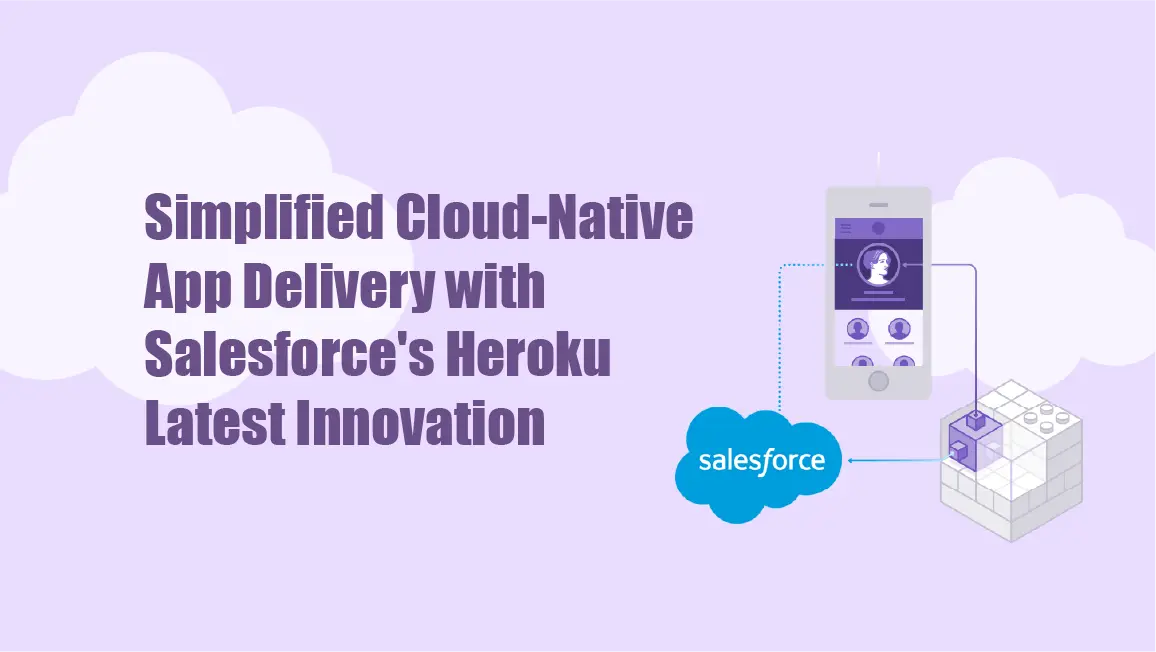Simplified Cloud-Native App Delivery with Salesforce’s Heroku Latest Innovation
Today, businesses are focused on meeting customer demands to achieve customer satisfaction. So they are interested in creating new digital revenue streams and streamlining operations. But at the same time, technology teams are navigating a complex tech landscape that includes infrastructure challenges, cloud-native tools, and AI adoption.
Balancing these priorities while boosting developer productivity creates friction and risks in developing and delivering software. The Heroku platform is tackling these challenges in its latest update by adding support for more programming languages and incorporating AI into the development process.
What are Salesforce’s Heroku latest innovations? Let’s dive into the blog to learn more about these innovations.
What Are Salesforce’s Heroku Latest Innovation
Heroku is a platform-as-a-service (PaaS) that enables teams to build, deploy, and scale applications in the cloud. Salesforce’s Heroku Latest Innovation enhances developer tools by adding support for .NET and AI development. It also boosts performance and simplifies operations by integrating services like Amazon EKS, ECR, AWS Global Accelerator, and AWS Graviton.
Additionally, Heroku now aligns with open-source standards like Kubernetes, OCI, and OpenTelemetry, making it more flexible without adding complexity. These updates improve the platform’s infrastructure and AI capabilities while following open-source standards to ensure better security, performance, and flexibility.
Salesforce’s Heroku Latest Enhancements
- Expanded Language Support: Developers can now use .NET in addition to existing languages like Node.js, Java, Python, Go, Ruby, PHP, Scala, and Clojure, improving flexibility.
- Faster AI App Development: Managed inference tools, including Amazon Bedrock, make it easier for developers to use AI and foundational models effectively.
- Improved DevOps Tools: New integrations with AWS services like Elastic Kubernetes Service (EKS), Elastic Container Registry (ECR), AWS Global Accelerator, and Graviton offer better automation, resilience, and global performance for the platform.
- Cloud-Native Compatibility: The platform aligns with modern cloud strategies, supporting Kubernetes, Open Container Initiative (OCI) standards, and Open Telemetry for advanced monitoring and extensibility.
Availability
- The new Heroku platform is available in pilot and will be generally accessible in early 2025.
- Heroku AI is also in pilot mode now and will be widely available in early 2025.
- The .NET support features are currently in public beta and are expected to become generally available by January 2025.
Wrap-up
Heroku is a leading cloud application platform with more than 65 million apps built, 65 billion daily requests served, and 38 million data stores created, Heroku’s scale and impact are unmatched. Additionally, its Elements Marketplace offers over 200 add-on services, creating a robust ecosystem for developers.
Along with leveraging Heroku’s new capabilities, businesses can drive innovation, streamline workflows, and stay ahead in the digital game. Discover more Salesforce news and insights on our blogs available on our website. Schedule a call with the Heroku experts at The Pinq Clouds for Salesforce’s Heroku innovations and capabilities and connect with us on AppExchange today!




